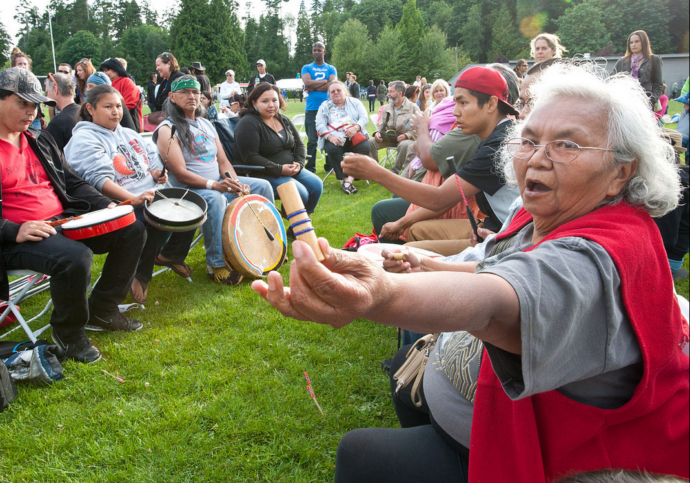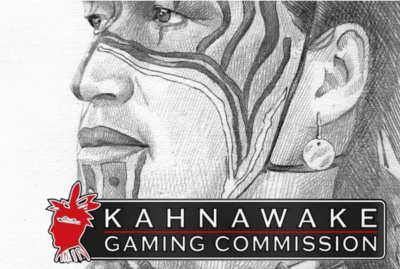 By Trevor Hurry
By Trevor Hurry
December 7th, 2023
BURLINGTON, ON
Sports gambling has been a contentious topic in Canada for many years, with its roots reaching back to the country’s early history. This article aims to explore the evolution of sports gambling in Canada, tracing its path from a frowned-upon activity to a widely accepted form of entertainment and a significant contributor to the economy.
Early Beginnings

Slahal: More than just a recreational activity – it was a social event and a means of acquiring wealth, and it held deep cultural significance.
The earliest known instance of gambling in Canada can be traced back to its indigenous tribes, who played a game of chance called Slahal. This game was more than just a recreational activity – it was a social event and a means of acquiring wealth, and it held deep cultural significance. However, with the arrival of the French and English colonizers, all forms of gambling, except for horse racing, were harshly restricted.
This restriction persisted for 77 years, with illegal gambling rings providing the only avenue for those wanting to try their luck. It wasn’t until 1969 that the Canadian government sanctioned provincial lotteries, with the caveat that the proceeds had to be given to charity. Recognizing the lucrative nature of gambling, the government eventually began amending the Criminal Code to permit more forms of gambling activities.
Legal Reform and Expansion
Throughout the 1970s and 80s, the Canadian government embarked on a series of legal reforms to expand the scope of sanctioned gambling activities. In 1985, an amendment to the Criminal Code transferred the control over gambling to individual provinces, allowing them to operate and license gambling establishments. This was a key step forward in the growth of sports gambling in Canada, as it enabled the establishment of province-run sports lotteries like Proline and Mise-O-Jeux.
However, these early attempts at regulated sports gambling were not without their limitations. The province-run systems were restrictive, allowing for only parlay bets within a lottery ticket format. This meant that to win, players had to accurately predict the outcome of at least three separate games. Additionally, the regulations varied greatly between provinces, adding another layer of complexity for players. Despite these challenges, Canadians were enthusiastic about the ability to legally place bets on sports events, marking a turning point in the acceptance of sports gambling in the country.
Transition to Online Gambling
 As the digital age advanced, so did the world of sports gambling. The 1990s marked the emergence of online casinos, creating a new sphere for gambling enthusiasts. Initially, the legality of these platforms operated in a gray area. However, as their popularity soared, the government could no longer ignore the burgeoning online gaming sector. The Kahnawake Gaming Commission, established in 1996, was one of the first jurisdictions worldwide to realize the opportunities presented by the digital age, granting licenses to online gambling sites.
As the digital age advanced, so did the world of sports gambling. The 1990s marked the emergence of online casinos, creating a new sphere for gambling enthusiasts. Initially, the legality of these platforms operated in a gray area. However, as their popularity soared, the government could no longer ignore the burgeoning online gaming sector. The Kahnawake Gaming Commission, established in 1996, was one of the first jurisdictions worldwide to realize the opportunities presented by the digital age, granting licenses to online gambling sites.
As Internet connectivity and technology evolved, the online gambling industry experienced exponential growth throughout the 2000s. The convenience and accessibility of online gambling platforms appealed to a broader audience, and the introduction of live betting added another dimension to sports gambling. Despite the availability of offshore online sportsbooks, the Criminal Code did not sanction single-event betting, which led to the loss of potential revenue for the Canadian government. This scenario paved the way for the push toward the legalization of single-game sports betting, culminating in the passing of Bill C-218 in 2021.
Current State of Sports Gambling in Canada
As of today, the sports gambling scene in Canada has undergone a transformational change. The passing of Bill C-218 in 2021 marked a significant milestone, as it legalized single-event sports betting, a much-awaited move that has opened up new avenues for both bettors and operators. This development is expected to bring significant taxable revenue, further supporting community needs, hospitals, and schools.
 Ontario, being the most densely populated province, has taken the lead by welcoming commercial operators, clearing $1 million within the first week of legalization. Despite the slow roll-out of commercial operations, scheduled to fully come into effect by March 2022, the excitement within the industry is palpable. Key industry players, keen to capitalize on this upswing, are setting their sights on Ontario as their next venture.
Ontario, being the most densely populated province, has taken the lead by welcoming commercial operators, clearing $1 million within the first week of legalization. Despite the slow roll-out of commercial operations, scheduled to fully come into effect by March 2022, the excitement within the industry is palpable. Key industry players, keen to capitalize on this upswing, are setting their sights on Ontario as their next venture.
In this vibrant and dynamic market, platforms such as FanDuel Canada stand out, offering sophisticated content, publishing capabilities, and multiple live sports and betting odds feeds to engage players before, during, and after the games. Indeed, the current state of sports gambling in Canada represents a remarkable evolution from its early beginnings, and it continues to carve out its path into the future.



















Interesting that there is no mention of the anticipated 30,000 additional gambling addicts in just Ontario as a result of the opening up of sports gambling.